- Home
- Anne McCaffrey
Dolphins of Pern
Dolphins of Pern Read online
The Dolphins of Pern
Anne McCaffrey
Content
Synopsis
Prologue
Chapter One
Chapter Two
Chapter Three
Chapter Four
Chapter Five
Chapter Six
Chapter Seven
Chapter Eight
Chapter Nine
Chapter Ten
Chapter Eleven
Chapter Twelve
Chapter Thirteen
Epilogue
Synopsis
When humans first settled Pern, intelligence‑enhanced dolphins came with them ‑to colonize the planet's ocean. Now, centuries later, as the battle to destroy the deadly Thread nears its end. The colonists renew their bond with the legendary shipfish.
Prologue
102 Years After Landing Kibbe gave the bell rope one last pull. He and Corey had been taking turns all morning but now the sun was descending over the high ground and still no‑one answered them. Usually someone came out of Man's place on the dock: even if only one of the boat people. But the boats rocked at anchor under the high wharf and it was obvious that no‑one had gone out in them, even to bring in fish, for some time.
Corey clicked at him in disgust. The others of their pod had long gone fishing on their own, too bored to see if there might just be humans to feed them when there were plenty small fish to be gleaned at this time of year from the rich northern waters.
She ‘blew’ her hunger at him, so annoyed with the lack of human attention that she refused to speak.
“There has been illness. Ben told us that.” Kibbe reminded her.
“He was not well,” Corey replied, reluctantly employing Speech to impart the concept. “Humans can die.”
"They do. It is true." For Kibbe was one of the oldest in their pod and had had two dolphineers as partners. He still fondly remembered Amy, his first one. She had been as much fish as he, even if she had to wear the long‑feet and had no fins.
She had given the best chin scratches and knew exactly where she had to slough off old skin. When he had been injured, she had stayed in the water by his cradle through the days and nights until she knew that he would recover. He would never have survived that long gash if she hadn't sewn it up and given him the human medicines that prevented infection.
Corey had had only one person and she hadn't seen him in a long time. It accounted for why she was so sceptical. She hadn't had the long association with humans that Kibbe had enjoyed. And now missed. They had worked well together, for there were still many long stretches of coastline to be mapped, and the locations of fishing schools determined. The work had seemed more like fun and there had been time for games. Lately all he had been able to do to keep the Dolphin Contract with men was to follow the ships, to be sure no‑one fell overboard without a dolphin to assist his rescue. His warnings about imminent storms might have been heeded but humans sometimes disregarded advice, especially if the fish were running well.
Kibbe was one of those who had been chosen to serve time up near the north‑western subsidence where lived The Tillek, chosen of all the pods for her wisdom, the name given the Pod Leader was also traditional. He had been taught, as had other dolphin instructors, why dolphins had followed humans to this world, far from the waters of Earth on which they had evolved: the chance to inhabit the clean waters of an unpolluted world and live as dolphins had before tech‑nol‑ogy (he had learned to pronounce that word very carefully) had spoiled the Old Oceans of Humankind.
He knew, and taught this despite the astonishment it caused, that dolphins had once walked on land. That is why they were air breathers and were required by Nature to surface to inhale oxygen. He listened to tales so old not even those who had taught The Tillek knew their origins: that dolphins had been special messengers of the gods, escorting those buried at sea to their special underworld' place. As dolphins considered the seas to be underworld', this caused some confusion. The humankind underworld' was where souls' went: whatever souls' were.
One of Kibbe's favorite tales was the one the Tillek recounted with great pride: how dolphinkind had once honored those who had died when one of the spaceships had been wrecked in the sea‑sky. Since then, the dolphins of Pern had honored those burial rites with their escort. It was a ceremony the humans had not asked the dolphins to include in their traditions but they always seemed grateful for it.
Learning the names of the dolphins who had slept the great sleep and accompanied humankind to these clean new seas of Pern was an important lesson. From these names came the ones chosen for each new calf, to celebrate those first Dolphins and those that were born in the Years Before Thread. The names had been set to dolphin music and could be sung on longer journeys in the Great Currents. It should always be sung before the young dolphins attempted to cross the great Whirlpool at the Northwest Subsidence, or even the Smaller One in the Eastern Sea.
There were some matters taught by The Tillek which simply had to be learned, because they mattered as details to the whole story. The Great Sleep, for instance, puzzled even the cleverest calf, male or female, because dolphins did not require sleep. To have slept for fifteen years was an incredible thing to have done. Although they knew to call the sparkling light points in the skies stars', there seemed to be a very great many of them. The Tillek could not tell them which had been old earth. Humans had had a device which allowed them to see longer. Because stars were in the air, dolphins could not sound' them. There were three points of light, at dawn, and again at twilight, which were constant. The Tillek said those points were the spaceships that had brought Humankind and Dolphinkind to Pern. They must take this on faith, she said, for she had had to learn these facts from The Tillek who had taught her. This was fact as well as faith and must be believed, though never experienced. It was History.
And history was another of the great gifts humankind had given dolphinkind: History was memory of things past. To be able to tell history, Dolphinkind had been given the ability to speak as they did so that was the greatest gift humans had given dolphins. For with the greatest gift they could repeat the words of history: words that were sounded as humankind sounded speech, not as dolphins did. And they could speak to humans and to themselves the things that were made of words and not sea sounds.
Kibbe had been very good at learning all the words that humans had used with dolphins, and all their special underwater signals. He was good at singing the words, too, so that the young ones of his pod were familiar with them should they be chosen to go to the waters of The Tillek and complete their training. Kibbe knew the traditions by which humans and dolphins lived in a special relationship: that dolphins would protect humans on or in the water to the best of their abilities, in whatever weather and unsafe conditions, even to the giving up of dolphin life to save the frailer humans; they would apprise humans of bad weather conditions, show them where the schools of preferred fish were running and warn them of sea hazards. The humans promised, in return for these services, to remove any bloodfish that might attach themselves to dolphin bodies, to float any stranded dolphin, to heal the sick and treat the wounded, to talk to them and to be partners if the dolphin was willing.
In the early days on Pern, humans and dolphins had taken great pleasure in the exploring of these new seas and those had been momentous years: the years of the life of the human Tillek whom all had revered. A Dolphins' bell had been sited at Monaco Bay and land and sea beings had promised to answer the bell whenever it was rung. In those days the young dolphins had each had a human partner, to help with the exploration, to explore the seas and the deep abysses and the great currents, the two subsidences, greater and smaller, and the four upwellings. There had been courtesy, each
to the other, land and sea‑faring humans.
The Tillek always spoke respectfully of humans, and severely disciplined any calf who used the term long‑foot' or finless' as some dolphins now were impudently describing them. When the silly fins complained that humans no longer kept their end of the ancient agreement, the Tillek would tell them, at her sternest, that that did not absolve dolphinkind from practising theirs. Humankind had had to stop exploring Pern to guard the lands against the Thread.
This would set the silliest to clicking nonsense noises of amusement. Why didn't humans eat Thread the way dolphins did?
The Tillek's reply was that humans wore different flesh and had to live on land where Thread did not drown but attacked human flesh like bloodfish, sucking life out of it. And not over a long period of time but immediately so all life was gone from the body in the course of several breaths: indeed the flesh of the human body was consumed.
This was another matter that all dolphins must believe as surely as they believed Thread was good to eat.
Then The Tillek would speak history and tell of the day Thread fell on Pern, and how it fed on the flesh of humans.
How the humans had battled hard with flame ‑ a source of heat and light that coastal dolphins could recognize but had never felt ‑ to burn Thread in the skies before it could fall on land and eat it or on humans and human animals and eat them. When all the things that humans had brought with them from old earth had been used up, the dolphins had helped the humans sail the many ships of the Dunkirk to the north where they could shelter in great caves, forsaking the pleasant warm southern waters. Kibbe had always loved hearing how the dolphins had helped the small ships make the long journey, despite storms and having to cross the great currents. There had been a Dolphins' Bell at Fort, too, and there had been many good years of partnership for dolphins and partners. Until the Sickness.
Kibbe knew that all humans had not died: ships still sailed with human crews and, on land, people could be seen working ‑ when it was not the Time of Thread.
Since Kibbe had had a partner, he knew of humans, and their frailties and their skill at relieving the few illnesses to which dolphins were prone. But the young in his pod did not and questioned why dolphins should bother.
"It is tradition. We have always done as we do now. We will always obey the Traditions."
"Why do humans want to come into water? They cannot surrender themselves to the currents as we can."
"Once humans swam as well as dolphins,” Kibbe would reply.
"But then we cannot walk on land,” the calves would say.
"Why would we want to?"
"We are of different flesh, with different needs: dolphins to the water, humankind to the land."
“ True, my son. Each to his own ways.”
"Why do humans want to come into water? Why do they not stay on land and leave the water for us?"
“They need the fish in the seas, as we do,” Kibbe would tell them. One had to tell the young the same words many times before they understood. "They need to travel to other land places and the only way is by water."
"They have dragons who fly."
"Not everyone has dragons to fly."
"Do dragons like us?"
"I believe they do though lately we have seen few of them. Once, I was told, they would swim in the sea with us."
"How can they swim with those great wings?"
"They fold them to their back."
"Odd creatures.”
"Many creatures of the land look odd to us, Kibbe would say, undulating through the water gracefully and effortlessly beside the calves he was teaching.”
Kibbe privately thought that humans were clumsy, awkward creatures, in the water or out. They were, however, slightly more graceful in the water, especially if they swam as dolphins did, by keeping their legs together. The way some of them thrashed about with their limbs moving separately wasted much energy.
Nowadays, humans did not follow the forms laid down by the ancestors of both species but that did not mean that the dolphins should be any the less heedful of keeping the traditions.
Very few captains leaned over the side of their ship when dolphins appeared to accompany it and asked how the pod was faring and how the schools were running. Very few would give their escort a token fish for the assistance. Of course, it had been many seasons since dolphins had found and brought any drowned human boxes to their attention. As it had been many seasons since dolphineers had swum long distances with their partners. Sad the way tradition declined, Kibbe thought.
Like not answering the Bell.
He did one last pass in front of the wharf, eyeing the deserted structure. He tolled the bell one last time, thinking it sounded as mournful as he felt for the silence that had once been filled with human noises, the fine work they had done together and the games they played.
With a final flip of his tail, he turned and started his long journey to the great subsidence in the Northwest sea to inform the Tillek that, once again, no‑one had answered the Bell. The humans who sailed in the ships would not learn of the latest hazards the dolphins had dutifully come to report. Even the waters of Pern changed the land of Pern but that was the natural way of things. Or so The Tillek said. The dolphins would keep to their patrols of the coastline and, when, if ever, a human would listen to them, at least they could tell him what had changed, and save his ship from being broken on unexpected reefs or rocks: or where the Currents had altered and might provide a hazard to the ships and the humans who sailed on it.
Chapter One
When Master Fishman Alemi came by Readis' hold that morning, he found his fishing crony ready and waiting.
"I thought you'd never come, Uncle Alemi,” Readis said in a tone that was a thin line away from accusatory.
"He's been on the porch,” Aramina told Alemi with a solemnhiding‑a‑smile‑face, "for the last hour. He was up in dawn's dark!" And she rolled her eyes at such eager anticipation.
"Uncle Alemi says the fish bite best at dawn,” Readis informed his mother in a condescending tone as he jumped down the three steps to take a firm hold of the callused hand of his courtesy uncle.
"I don't know which excited him more: fishing with you or being allowed to attend Swacky's gather this evening." Then she waggled a finger at her small son. "Remember. You have to take a nap this afternoon.”
"I'm all ready to go fishing now,” Readis said, ignoring the threat. "I got my snack,” and he brandished the net sack laden with his water bottle and wrapped sandwich, "and my vest." The last was added in a contemptuous tone.
"You will note that I'm wearing mine, too,” Alemi said, giving the trusting little paw a shake.
Aramina chuckled. "That's the only reason he's wearing his.”
"I swim good!" Readis announced in a strong loud voice. "I swim as good as any shipfish!”
“That you do,” his mother agreed equably.
"Don't I know that as I taught you?" Alemi replied cheerfully.
“And I can swim that much better and still use a vest in a small boat."
"An' in stormy weather,” Readis added to prove that he knew the whole lesson on safety vests. “My mother made mine,” he said proudly, puffing out his vested chest and grinning up at her. With love in every stitch!”
C'mon, lad, time's a‑wasting,” Alemi said.
With a farewell wave of his free hand to Aramina, he led his small charge down to the beach and the slab‑sided dinghy that would convey them out to where Alemi felt they would likely find the big redfins that were promised for grilling at the evening's festivities.
Swacky had been part of Readis' life since he could remember.
The stocky ex‑soldier had joined Jayge and Aramina when Aunt Temma and Uncle Nazer came from the north. He lived in one of the smaller holds and turned his hand to any one of a number of chores necessary in Paradise River Hold. Swacky had guard stories of all the Holds he'd served in to tell a small and fascinated boy. Readis' father, Jayge,
never talked of the renegade problem which was when he had come to know Swacky. And Swacky never mentioned exactly what Jayge had done in those days, though he was real fierce and unforgiving of the renegades for ‘slaughtering innocent folk and animals just to see their blood run' ‑ except it had to do with the particular renegades who had attacked the Lilcamp wagon train which was Jayge's family business.
If Readis had been asked which man he loved best ‑ apart from his father, of course ‑ Swacky or Alemi, Readis would have been hard pressed to make a choice.
Both men figured largely in his young life but for different reasons. Today Readis was going to have the best of both: fishing for Swacky in the morning with Alemi, and feasting to honour Swacky's seventy‑five Turns of living tonight!
Pushing together, they eased the skiff down the sandy shore and into the gently lapping water. When they had waded out until the water was mid‑thigh on Readis, Alemi gestured for him to jump in and take up the paddle. That was the main difference between Readis' two idols: Swacky talked a lot; Alemi used gestures where the other man would have used sentences.
With one mighty last push, Alemi sent the skiff forward over the first of the little combers and jumped in. At another familiar gesture, Readis moved to the stern and skulled his paddle to keep the forward movement while Alemi unfurled the sail and let the boom run out. The inland dawn breeze filled the canvas and Readis stowed the paddle and reached for the keelboard, sending it home into the stern slot and shoving the cotter‑pin through to lock it firmly in place.
"Hard a‑port,” Alemi sang out, accompanying his command with appropriate gestures. He ducked agilely as the boom swung over, playing out the lines until he had moved into the seat beside his shipmate. He shortened sail and then put his free arm behind Readis, noting the lad's instinctive handling of the rudder.
Alemi's good wife had given him three fine girl children and was carrying a fourth which both devoutly hoped would be a son. But until that time, Alemi ‘practised' with Readis. Jayge approved since it would stand a shoreside holder in good stead to appreciate the moods and bounty of the sea and Readis would profit by knowing more than one skill.

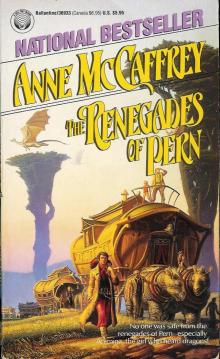 The Renegades of Pern (dragon riders of pern)
The Renegades of Pern (dragon riders of pern)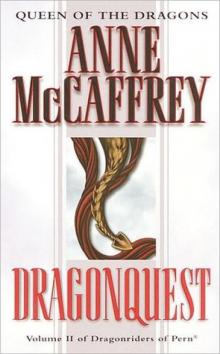 Dragonquest
Dragonquest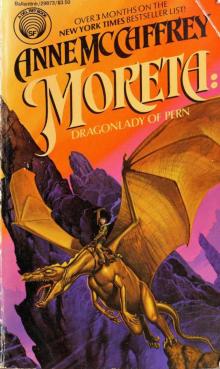 Moreta (Dragonlady of Pern)
Moreta (Dragonlady of Pern)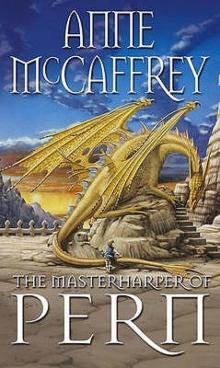 The Masterharper of Pern
The Masterharper of Pern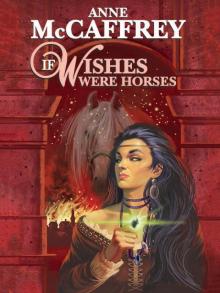 If Wishes Were Horses
If Wishes Were Horses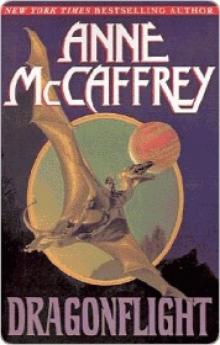 Dragonflight
Dragonflight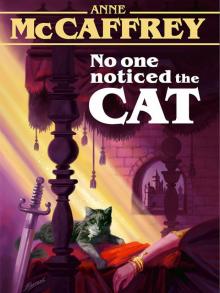 No One Noticed the Cat
No One Noticed the Cat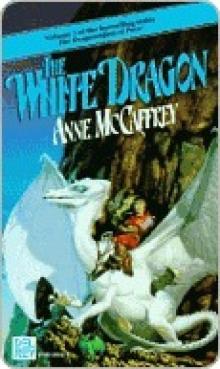 The White Dragon
The White Dragon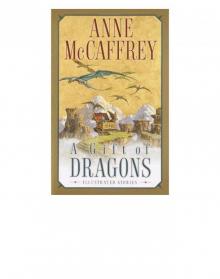 A Gift of Dragons
A Gift of Dragons Harper Hall - Dragonsong
Harper Hall - Dragonsong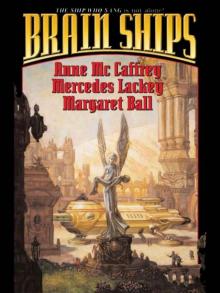 Brain Ships
Brain Ships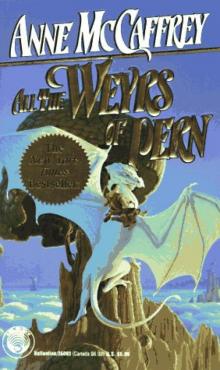 All The Weyrs of Pern
All The Weyrs of Pern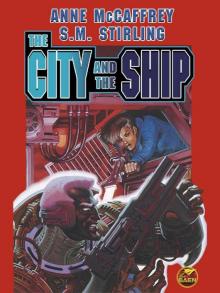 The City and the Ship
The City and the Ship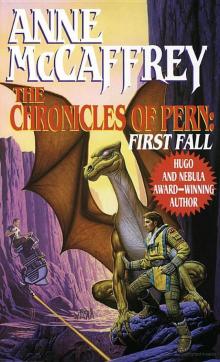 The Chronicles of Pern: First Fall
The Chronicles of Pern: First Fall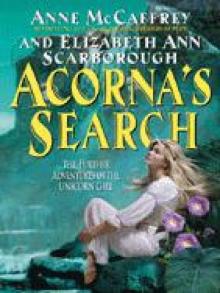 Acorna’s Search
Acorna’s Search Powers That Be
Powers That Be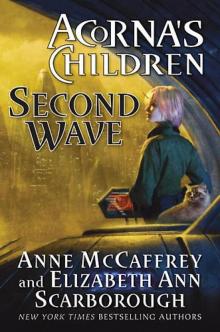 Second Wave
Second Wave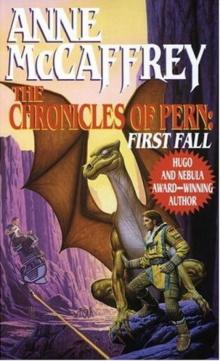 Chronicles of Pern (First Fall)
Chronicles of Pern (First Fall) The Kilternan Legacy
The Kilternan Legacy Decision at Doona
Decision at Doona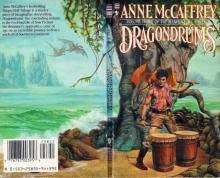 Dragondrums (dragon riders of pern)
Dragondrums (dragon riders of pern)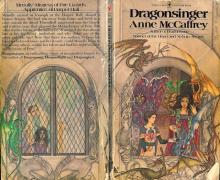 Dragonsinger (dragon riders of pern)
Dragonsinger (dragon riders of pern)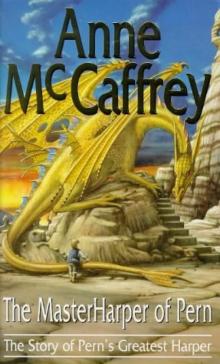 The Master Harper of Pern
The Master Harper of Pern Crystal Singer
Crystal Singer Acorna’s People
Acorna’s People Pegasus in Flight
Pegasus in Flight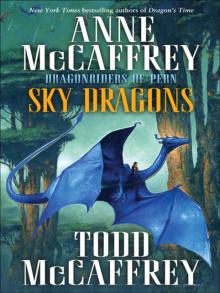 Sky Dragons Dragonriders of Pern
Sky Dragons Dragonriders of Pern Dragonriders of Pern 4 - Dragonsinger
Dragonriders of Pern 4 - Dragonsinger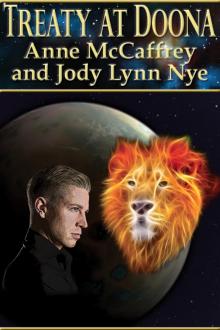 Treaty at Doona
Treaty at Doona Damia's Children
Damia's Children Stitch In Snow
Stitch In Snow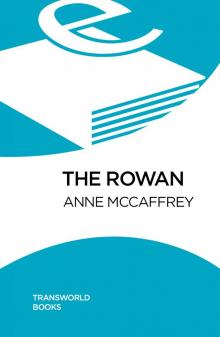 The Rowan
The Rowan Dinosaur Planet
Dinosaur Planet The Year of the Lucy
The Year of the Lucy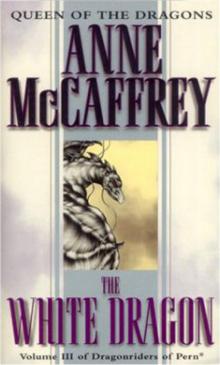 The White Dragon p-4
The White Dragon p-4 Power Lines
Power Lines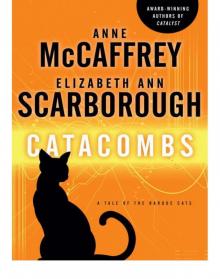 Catacombs
Catacombs Moreta
Moreta Dragonsinger
Dragonsinger Crystal Line
Crystal Line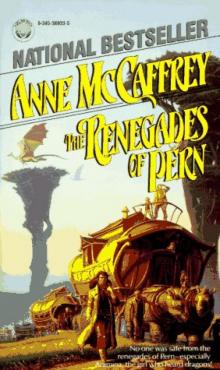 The Renegades of Pern
The Renegades of Pern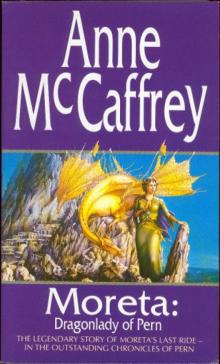 Moreta - Dragonlady of Pern p-8
Moreta - Dragonlady of Pern p-8 Deluge
Deluge The Skies of Pern
The Skies of Pern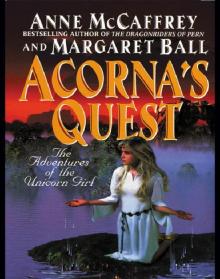 Acorna's Quest
Acorna's Quest Dragon's Kin
Dragon's Kin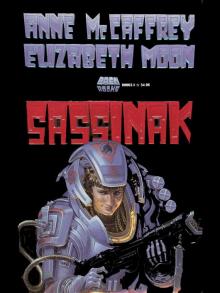 Sassinak
Sassinak![Crystal Universe - [Crystal Singer 03] - Crystal Line Read online](http://i1.bookreadfree.com/i1/03/31/crystal_universe_-_crystal_singer_03_-_crystal_line_preview.jpg) Crystal Universe - [Crystal Singer 03] - Crystal Line
Crystal Universe - [Crystal Singer 03] - Crystal Line Freedom's Landing
Freedom's Landing Acorna’s Quest
Acorna’s Quest Masterharper of Pern
Masterharper of Pern Restoree
Restoree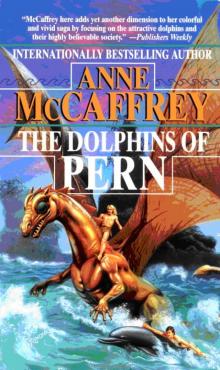 Dolphins of Pern
Dolphins of Pern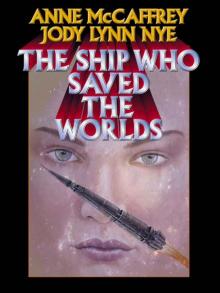 The Ship Who Saved the Worlds
The Ship Who Saved the Worlds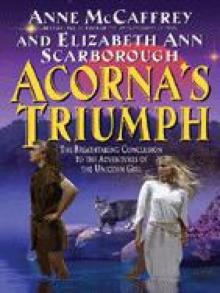 Acorna's Triumph
Acorna's Triumph Acorna's Rebels
Acorna's Rebels![[Acorna 08] - First Warning: Acorna's Children (with Elizabeth Ann Scarborough) Read online](http://i1.bookreadfree.com/i1/04/06/acorna_08_-_first_warning_acornas_children_with_elizabeth_ann_scarborough_preview.jpg) [Acorna 08] - First Warning: Acorna's Children (with Elizabeth Ann Scarborough)
[Acorna 08] - First Warning: Acorna's Children (with Elizabeth Ann Scarborough)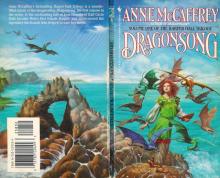 Dragonsong (dragon riders of pern)
Dragonsong (dragon riders of pern) Dragonriders of Pern 6 - Dragondrums
Dragonriders of Pern 6 - Dragondrums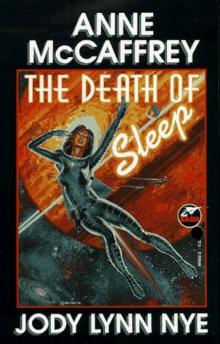 The Death of Sleep
The Death of Sleep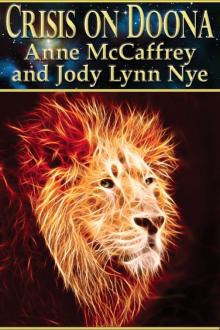 Crisis On Doona
Crisis On Doona Nimisha's Ship
Nimisha's Ship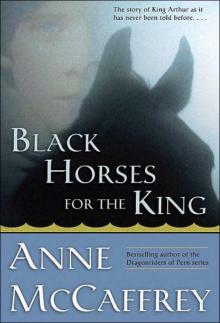 Black Horses for the King
Black Horses for the King Changelings
Changelings Freedom's Choice
Freedom's Choice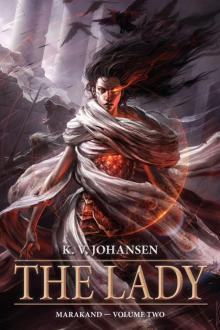 The Lady
The Lady The Coelura
The Coelura Catalyst
Catalyst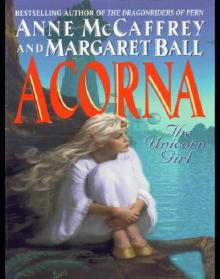 The Unicorn Girl
The Unicorn Girl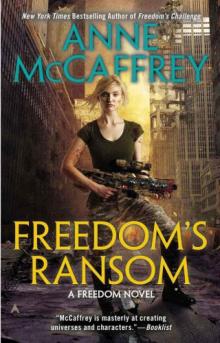 Freedom's Ransom
Freedom's Ransom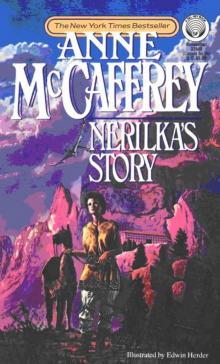 Nerilka's Story
Nerilka's Story Dragon's Fire
Dragon's Fire Generation Warriors
Generation Warriors Lyon's Pride
Lyon's Pride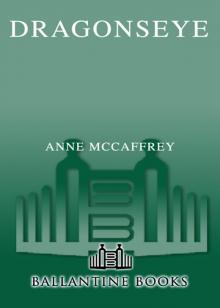 Dragonseye
Dragonseye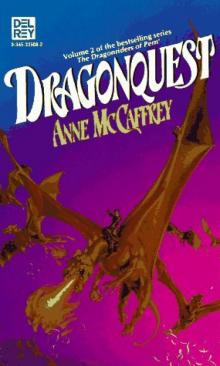 Dragon Quest
Dragon Quest Dragondrums
Dragondrums Dragonsong
Dragonsong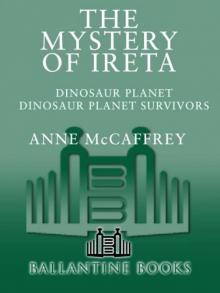 The Mystery of Ireta
The Mystery of Ireta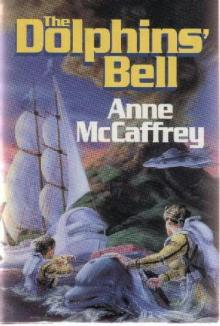 Dolphins' Bell
Dolphins' Bell To Ride Pegasus
To Ride Pegasus Power Play
Power Play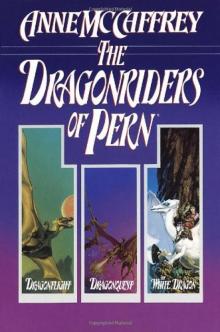 The Dragonriders of Pern
The Dragonriders of Pern An Exchange of Gifts
An Exchange of Gifts The Ship Who Sang
The Ship Who Sang Sky Dragons: Dragonriders of Pern
Sky Dragons: Dragonriders of Pern Maelstrom
Maelstrom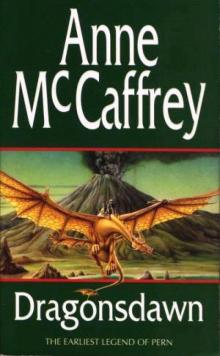 Dragons Dawn
Dragons Dawn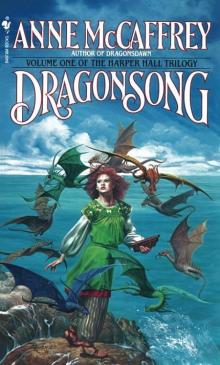 Dragon Song
Dragon Song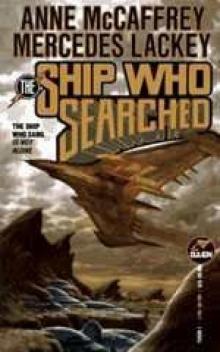 The Ship Who Searched b-3
The Ship Who Searched b-3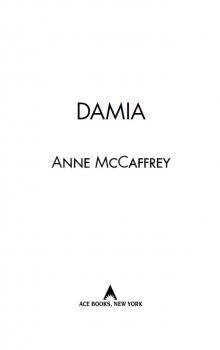 Damia
Damia Freedom's Challenge
Freedom's Challenge